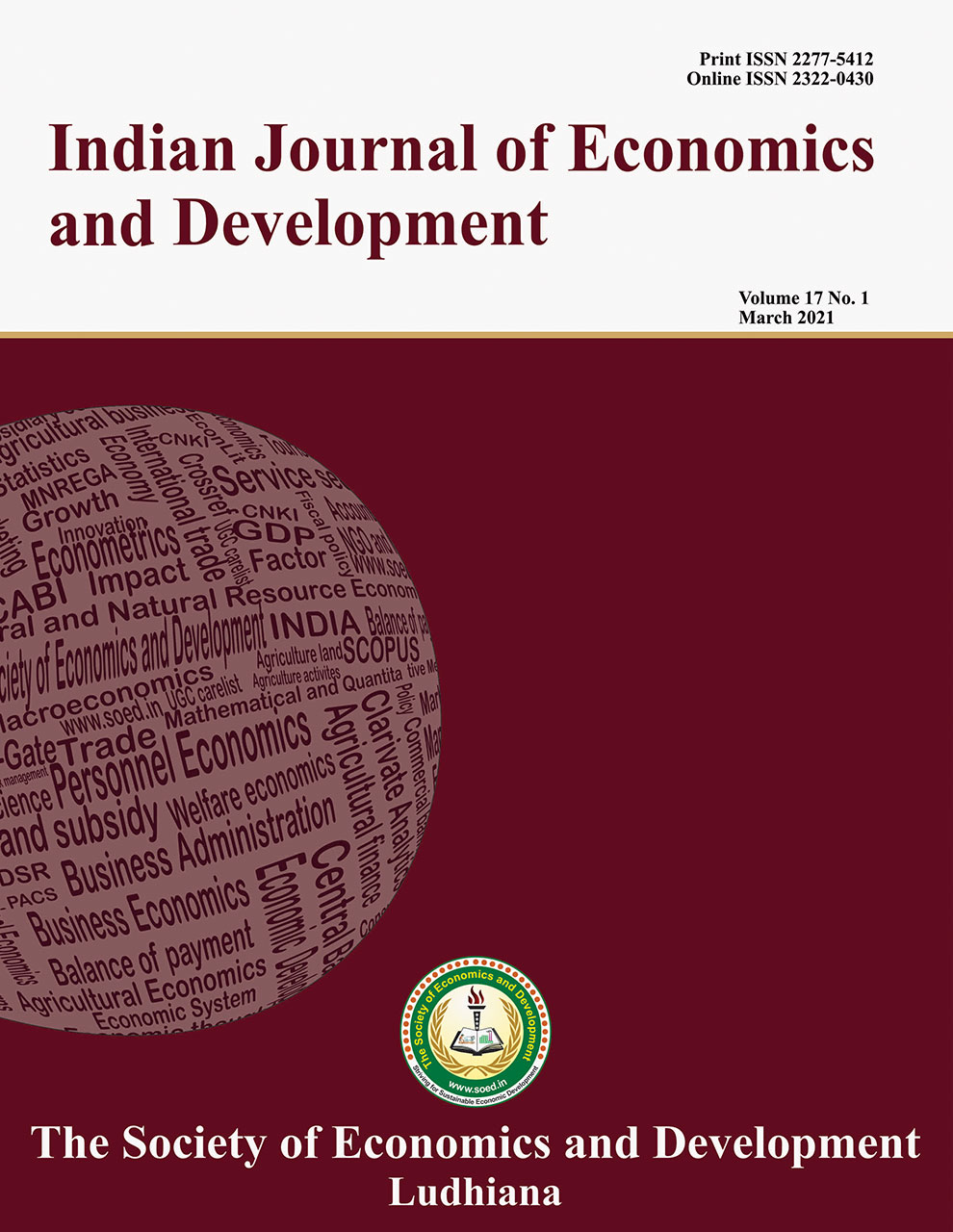Resource Use, Profitability and Externality in Aerobic vis-à-vis Conventional Rice Cultivation in Karnataka

Price: ₹ 500
Author: Thejaswi Kumar J. and Samjhauta Thapa
Author Address: Research Scholars, Department of Agricultural Economics, UAS, Bangalore, GKVK-560065 (Karnataka)
Keywords: Aerobic rice, methane inventory, partial budgeting, positive externality
JEL Codes: P32, Q12
Abstract
The study was undertaken to analyze resource use, the economics of cultivation and the externality associated with Aerobic Rice Cultivation (ARC) compared to Conventional Rice Cultivation (CRC) in the Eastern Dry Zone of Karnataka. The Snowball sampling technique was adopted to collect primary data from 50 farmers, each practising ARC and CRC. The per hectare gross returns were higher in CRC (`1,16,827 per ha) compared to aerobic rice cultivation (`1,00,664 per ha) since the grain yield was higher in CRC. The aerobic rice cultivation (ARC) was profitable as it generated higher net returns (`24,653 per ha) compared to conventional paddy cultivation (`11,046 per ha) because of the lower cost of cultivation. ARC was sustainable compared to the conventional method as resources were optimally used. In addition, ARC resulted in positive externality to the tune of `7714 per hectare over CRC. Human labour was the major cost component in both ARC and CRC. Among the costs in ARC, human labour cost accounted for nearly 40 per cent because of the high labour requirement for weeding. The imputed irrigation cost was higher in CRC than in ARC, where water requirement was saved up to 63 per cent. The analysis revealed the superiority of ARC over CRC in terms of cost, net returns and positive externality. Hence, the study will help policymakers and stakeholders to promote the technology extensively.
Description
Indian Journal of Economics and Development
Volume 18 No. 2, 2022, 359-366
DOI: https://doi.org/10.35716/IJED/22083
NAAS Score: 5.15
Indexed in Clarivate Analytics (ESCI) of WoS
Indexed in Scopus
UGC Approved



